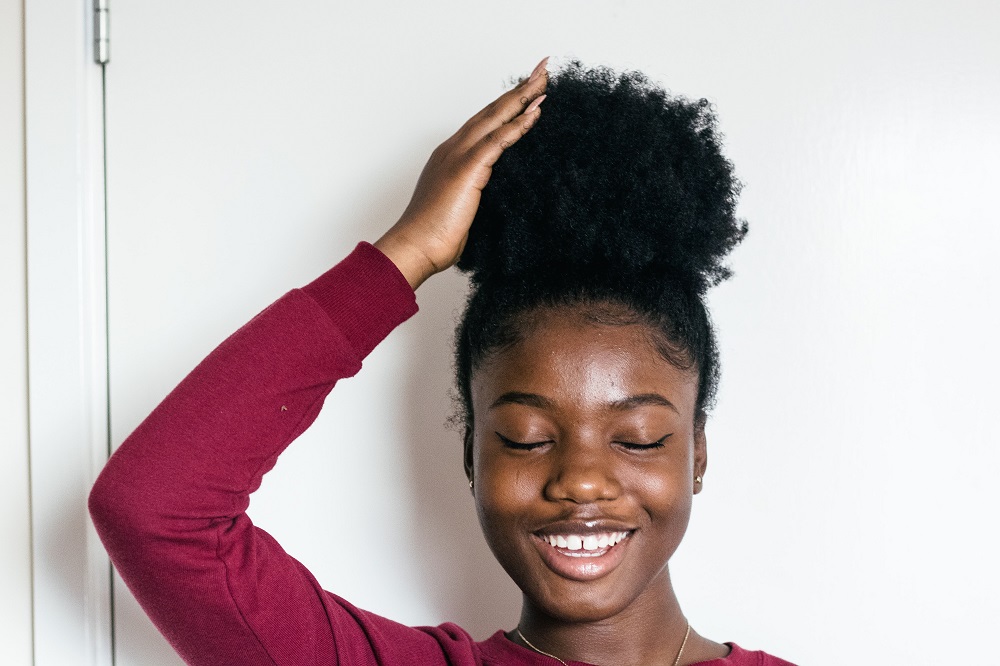By Yanet Mengistie
Posted on October 8, 2021

For Black individuals and Black women in particular, hair means a lot to us. Not just because it is how we present ourselves to the world, but because doing our hair is a ritualistic process in which Black people bond with each other over shared haircare experiences. When there are Black-owned hair products that serve Black hair needs, we flock to these companies with a sense that they understand the collective experience of what it’s like to care for and work with Black hair textures. However, when these companies we come to love switch up and begin to leave Black hair textures behind, they abandon the customers who brought them success and recognition in the first place, which is often Black people.
The switch up
Many Black-owned hair care companies will start with the best interests of their consumers, Black people, in mind but this changes when they start seeing greater profit in the mass market. Once these companies start achieving financial success they have a lot more demand for products. It can be difficult for small businesses to thrive, so bigger companies such as Johnson & Johnson or Unilever come in, as they can offer manufacturing facilities and distribution channels. Distribution channels can offer these companies access to big retailers such as Walmart, Target, or Shoppers Drug Mart. These distribution channels can also make products global by opening them up to international markets. This may seem like a win for the smaller companies but in reality it changes internal operations. This is because larger companies have a different business model, where they want to cut costs as much as possible, so the brands they own become focused on the quantity of product they can make, market, and sell, and less about quality. This is where Black consumers begin to see drastic changes to their haircare products and the marketing of it.
Examples of brands that have done this
Unfortunately, there are a few examples of previously Black-owned hair care brands that have changed their marketing due to the acquisition of the company by larger white-led companies or broader success on the mainstream market. SheaMoisture is the most famous example. The company had been a favourite for Black hair textures for a long time. Though the brand was expensive, many customers still flocked to the products believing they were worth it. Its popular products included its Curl Enhancing Smoothie and Curl Style Milk. However, changes began to occur with the success of the company. In April 2017, a commercial was released that left fans of the company disappointed. The commercial revolved around the shame that comes with natural hair, but instead of featuring Black women with textured hair patterns—who have felt genuine shame around their hair due to being held to white beauty standards—the advertisement featured white women. The ad depicts a majority of white women discussing the difficulties they had to ‘overcome’ having straight hair or being a redhead. This led to the ad, and by extension the company, being criticized on Twitter and other social media platforms for ostracizing Black people, the company’s original consumer-base, from the mass marketing campaigns. It sent the message that the company did not care to include its Black supporters anymore.

How capitalism is involved
Capitalism influences businesses, especially Black-owned businesses. Capitalism is when a nation’s economy is based on privately-owned companies. This means that prices for products and services are set by companies and corporations instead of the government. The underlying principle that drives this type of economics is consumption, as the companies (and by extension nations) grow from the demand for certain products. This at first can seem great, because it causes a product to become more widely accessible and might even lower the cost over time, allowing a wider range of demographics to attain the product. This widespread access often comes at a cost to the quality and integrity of the product. To keep up with this expansion, and with pressure from larger corporations, smaller companies may have to use ingredients or materials that are cheaper and easier to make in larger quantities. When Black-owned hair product companies are acquired by larger ones, the product formula is changed, and the marketing is expanded to include other races that were not a part of the original customer base.
For example, a popular ingredient you may see added to your favourite hair care product is glycerin. Glycerin is a favourite for formulators and companies because it is cheap to buy and is easy to work with. It is also a humectant meaning, it brings moisture from the surrounding environment into our hair follicles. This can be great if the environment is moderate, but if it is anything else Black hair in particular may be impacted. Since Black textures require more moisture, if someone uses a glycerin heavy product and the weather conditions are dry the glycerin will dry out one’s hair. Meaning that it could cause a Black person’s hair to become drier than without the glycerin. Also, if it’s humid the glycerin will draw in the excessive amounts of the moisture in the air possibly making one’s hair more frizzy if they already have a texture that is prone to be frizzy. So, if you see some of your favourite hair care products have specifically started incorporating more glycerin, keep in mind the nature of the ingredient when deciding on a product. Its price point and easy to formulate ability makes this ingredient one that is ideal for companies, but might not be suited for Black customers’ hair care needs.
Canadian black owned hair care brands to support
With many changes occuring in the availability of Black-owned hair care brands, it’s important to support businesses that are keeping their customers at the forefront of their mission and vision, and aren’t changing the demographic they serve or formulas used for mass appeal.

CurlShoppe
CurlShoppe is a Toronto based Black women owned company that is inclusive to all hair types and all genders. The company has two successful lines which are called Coconut Is Everything and Butter’d Up which will help seal in that moisture. They also have a For Men to aid in men keeping their textures vibrant and luscious. They have leave-in conditioners, stylers and even sell styling tools like detangling brushes to help you get your hair healthy or maintain your current textures.
Nsoromma Hair
Owned by Esther Joseph, Nsoromma Hair is another Black owned Canadian business. Nsoromma Hair stemmed from Joseph’s hair styling and braiding business, but as the business grew Joseph decided to expand, thus creating their own hair care lines. Being a hairstylist, Joseph knows what Black hair textures need, so whether someone is purchasing hair oil, Hibiscus, Vanilla Leave-In Conditioner or Whipped Chebe Hair Butter, customers know they will be getting the best products from an experienced professional.
Ebony Rose
This Black women owned hair care company was founded by none other than Ebony Rose herself. Her entrepreneurial journey started upon her need to research after her child experienced rashes as a result of certain products. Rose didn’t like what she found, and therefore decided to start her own hair care and even skin care products! She then created her famous body butter called Shea Silk. The rashes on her child started to disappear, and with that her passion project turned into her company Ebony Rose. The company also offered a variety of products such as curl cremes, leave-in conditioners and pomades. They also offer mens care with products like beard oil and beard wax. So make sure to support Ebony Rose and its future products.
Black-owned hair care brands that get bought by larger companies need to be more transparent. Although they may have good intentions in trying to increase sales, they need to be honest with their Black customers, whose hair is not as adaptable to changes in product ingredients, no matter how seemingly small. If changes are going to be made to the formulas in the products made for Black hair, companies need to be transparent about this, so that customers can make informed decisions on whether they want to continue to use, and in turn support, the changed company and product.
Yanet Mengistie is an experienced Writer, Researcher and Creative who is ready to hit the ground running with Black Voice. Driven by having previously worked as a Content Writer for a company that sought to uplift small businesses in Northern Canada, she takes joy in using her writing to uplift small or marginalized voices. As a Writer with Black Voice, her goal is to combine this passion for small businesses with this publication's mission of empowering Black individuals across Canada. Yanet is committed to ending the marginalization of Black Canadian perspectives and opinions. She hopes to bring Black excellence, concerns or hot topics to the forefront through her work with Black Voice.

